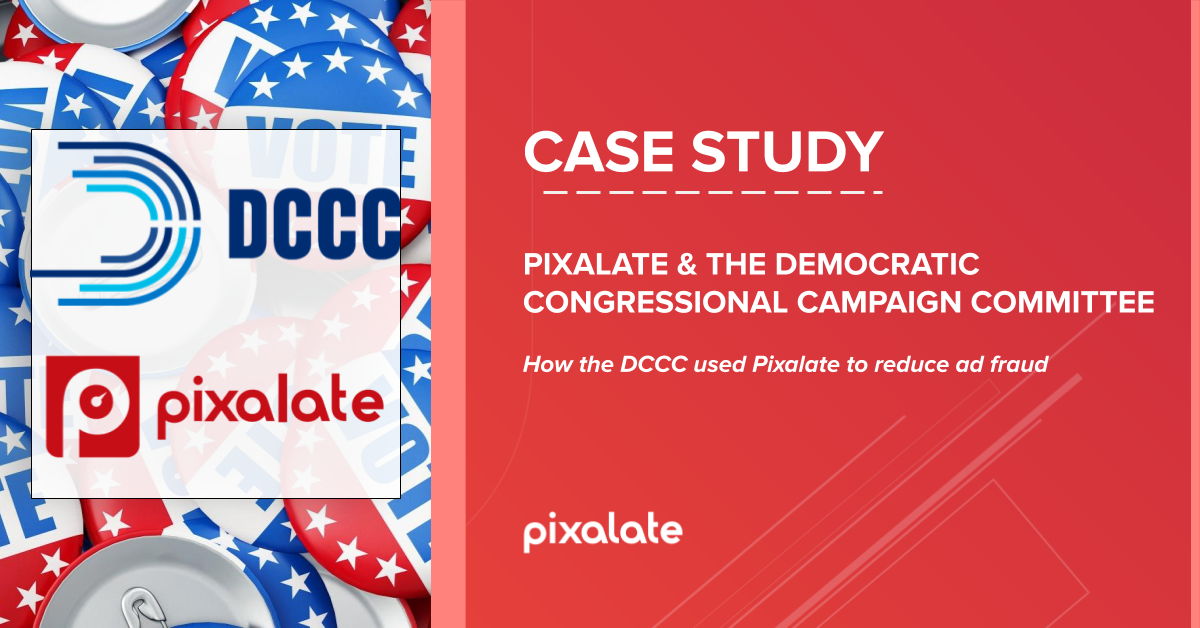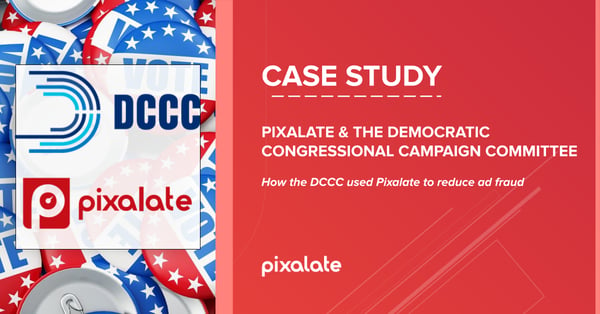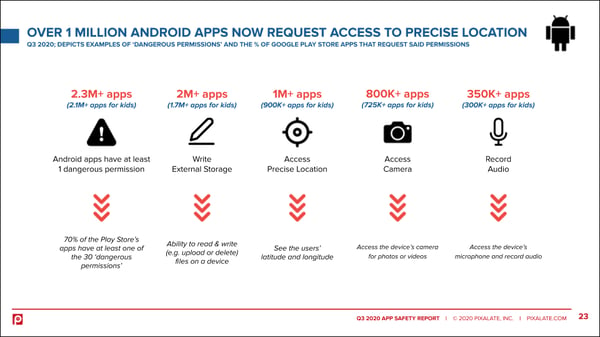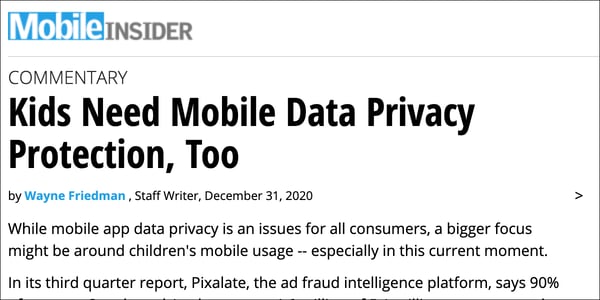
This week's review of ad fraud and quality in the digital advertising space.

For the 2020 election, the Democratic Congressional Campaign Committee (DCCC) utilized Pixalate to improve campaign transparency and reduce ad fraud. The DCCC is the official campaign arm of Democrats in the United States House of Representatives.

This Pixalate blog examines the number of apps available on the Google Play Store that request precise location access (latitude and longitude GPS). As of the end of Q3 2020, Over 1 million apps on the Google Play Store request precise location, including over 900k apps for kids (aged 12 & under).

MediaPost recaps Pixalate's Mobile Ad Supply Chain: App Safety & Consumer Data Privacy Report (Q3 2020) and discussions some of the notable data points around apps for kids (aged 12 and under), including that "90% of apps on Google and Apple stores -- 4.6 million of 5.1 million -- are targeted to kids 12 years old and younger."

"The year ahead looks set to be an exciting time for programmatic marketing, with viewers and advertisers embracing CTV and opportunities for programmatic marketers to leverage linear TV," wrote Digiday in a piece overviewing the major issues in programmatic advertising for 2021. Digiday also notes that "discussions about data usage and privacy" will continue in 2021.

In this eMarketer podcast, eMarketer senior analyst at Insider Intelligence Sara M. Watson discusses the possibility of "a new federal privacy law and reimagining antitrust rules."
*By entering your email address and clicking Subscribe, you are agreeing to our Terms of Use and Privacy Policy.
These Stories on Weekly Recaps
*By entering your email address and clicking Subscribe, you are agreeing to our Terms of Use and Privacy Policy.

Disclaimer: The content of this page reflects Pixalate’s opinions with respect to the factors that Pixalate believes can be useful to the digital media industry. Any proprietary data shared is grounded in Pixalate’s proprietary technology and analytics, which Pixalate is continuously evaluating and updating. Any references to outside sources should not be construed as endorsements. Pixalate’s opinions are just that - opinion, not facts or guarantees.
Per the MRC, “'Fraud' is not intended to represent fraud as defined in various laws, statutes and ordinances or as conventionally used in U.S. Court or other legal proceedings, but rather a custom definition strictly for advertising measurement purposes. Also per the MRC, “‘Invalid Traffic’ is defined generally as traffic that does not meet certain ad serving quality or completeness criteria, or otherwise does not represent legitimate ad traffic that should be included in measurement counts. Among the reasons why ad traffic may be deemed invalid is it is a result of non-human traffic (spiders, bots, etc.), or activity designed to produce fraudulent traffic.”

